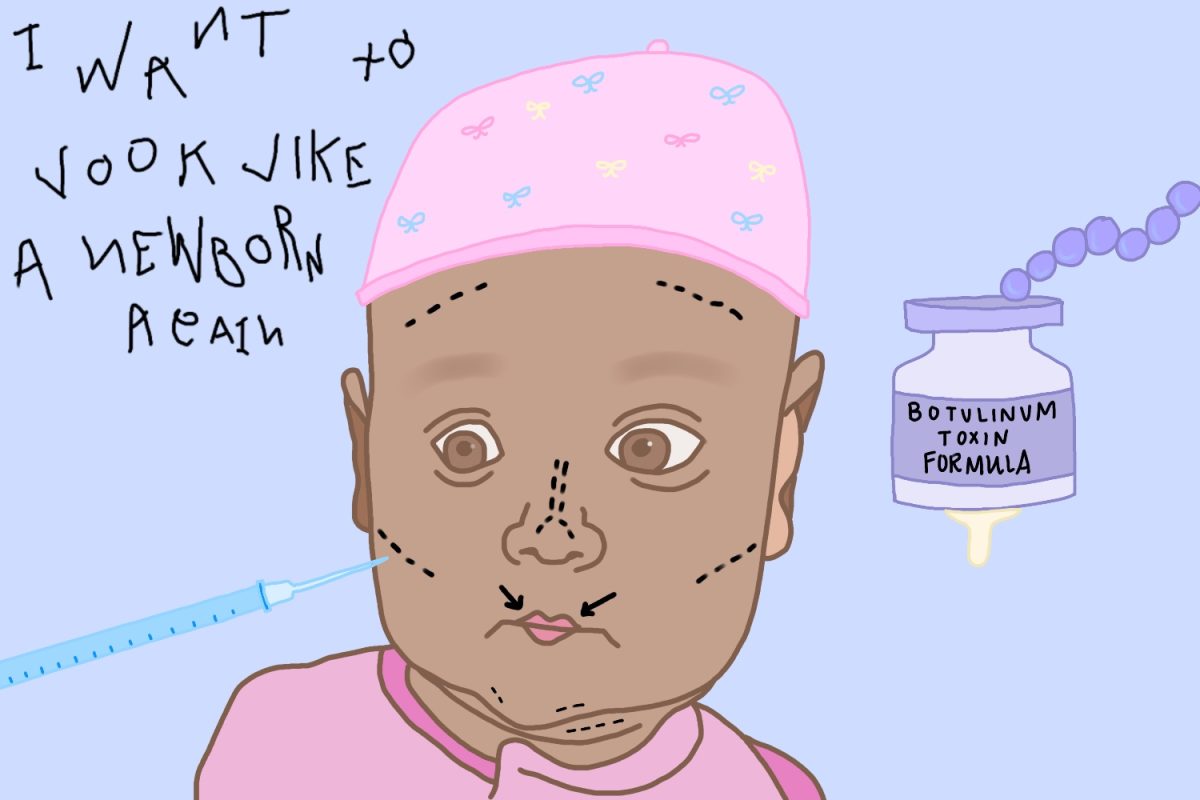You are scrolling through TikTok and when a video pops up — it’s a 10-year-old at Sephora grabbing retinol and collagen products for their skincare routine. You keep scrolling and see influencers getting vampire facials, chemical peels or doing the infamous “morning shed.” The deeper you go down this rabbit hole, the more you’ll find how popular the anti-aging craze has become over the last few years. But has it gone too far?
Many girls, some as young as 6 — known on social media as “Sephora kids” — are vlogging their morning routines of elaborate 10-step skincare routines with expensive products and a face full of makeup. These girls are focused on maintaining a youthful appearance, following advice given by 20-something influencers through current trends. In fact, the anti-aging hashtag on TikTok has 1 million posts, with videos reaching thousands of likes on skincare tips and routines. The anti-aging industry itself is even projected to increase its value to $93 million by 2027.
Celebrities have been following anti-aging trends for years. Kim Kardashian popularized vampire facials when she posted on Instagram back in 2013 about the procedure. Most recently in an episode of “The Kardashians,” she admitted to getting salmon sperm facials and injections, a procedure known for its rejuvenating properties. The list of random procedures and beauty treatments is endless.
These kids, many of whom have not reached puberty, should not be worried about the effects of aging. Social media use is rising for tweens — as of 2022, screen time rose by 17% for 8 to 12-year-olds since the beginning of the COVID-19 pandemic. Many young girls on social media might start to feel pressure to follow beauty trends and routines that popular influencers are promoting. These trends may be seen as entertainment, a symptom of kids wanting to feel like the cool, young adults they see on their TikTok page. With this comes the worry that young kids are being forced to grow up too fast, leaving their childhood and innocence earlier than any other generation has.
When I think of myself when I was 10 years old, I still remember feeling excited to go to the playground, not worrying about whether my skin was dirty or if it needed to be Instagram-worthy. I was not pressured to follow beauty trends or get the latest skincare products from the most popular brands, nor was I waking up earlier so I could capture my full skincare routine for my TikTok followers. At the same time, I did not have access to videos perpetuating a certain beauty standard or videos explaining how to keep my skin flawless.
Though I remember wanting to be like the older people I admired, changing my appearance never crossed my mind. Ideas regarding beauty and anti-aging are extremely present in our society, and I’m afraid that it’s impacting how young kids are thinking, to the extent that they are conforming to unrealistic standards and changing the way they look before they’ve even finished middle school.
Perhaps the true worry is how much exposure young children are getting to social media. Instead of judging or scrutinizing the interests of young kids, we should be more aware and careful of the content that younger generations are ingesting.
Contact Mariana Arboleda at [email protected].























































































































































